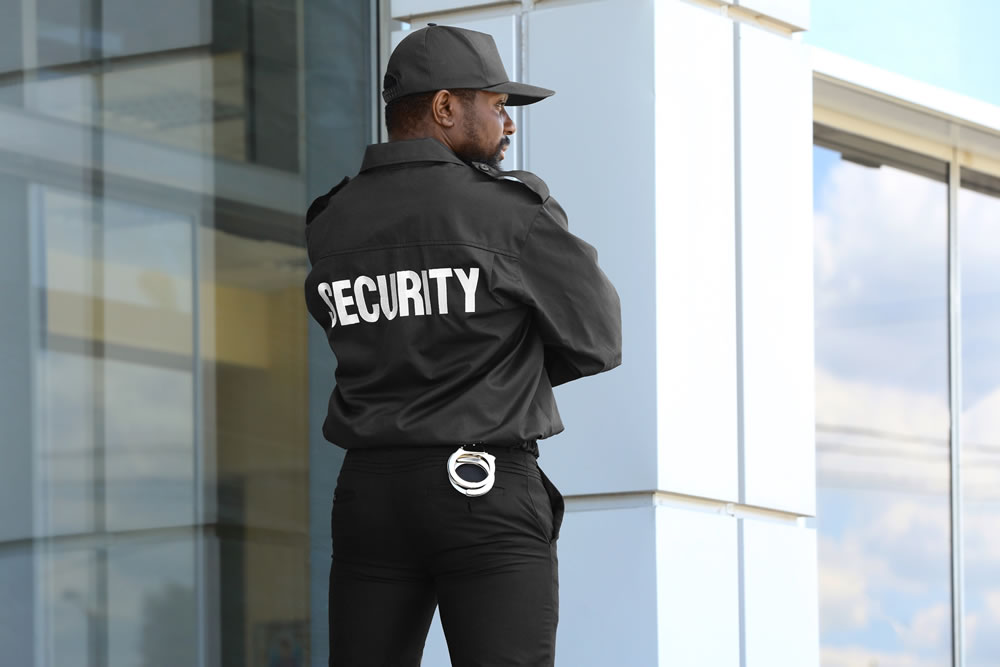Security guards can be quite imposing figures, so it’s perfectly natural to question their legal powers. Although security guards are working in an official capacity to protect private premises, they don’t possess the same range of abilities as a police officer.
With that said, security professionals in NSW do have a few legal powers that the public should stay aware of, chiefly their ability to refuse entry, escort you from a property, and make an arrest.
If you’re looking to hire security guards, here are the key answers to the legal powers that they hold:

Can a Security Guard demand my Information?
You may prefer not to give your name or other details to a security guard. You aren’t legally obligated to provide any information, unless you are unlawfully present on the property or believed to be under the age of 18 and purchasing alcohol.
If you are found trespassing on private premises or enclosed land otherwise, a security official can lawfully ask you for your name and address. If you refuse to provide these details, or give false information, you can be charged.
If you are purchasing alcohol and believed to be under the age of 18, a security guard can demand your information. Failing to provide these details can lead to prosecution.
Can a Security Guard refuse entry?
A security guard is tasked with protecting a property, but also preventing, detecting and investigating crimes in relation to said property. In pursuit of these responsibilities, a security guard can refuse you entry. Normally, this will be because:
- You are banned from the premises for past troublemaking
- You are behaving in a disorderly or hostile manner
- You are intoxicated and behaving in a disruptive manner
- You seem disreputable or likely to cause trouble
Security guards can refuse entry for many other justifiable reasons, but they are not allowed to base those decisions on reasons such as age, gender, race, religion, sexuality, disability, or any other protected characteristics.
Can a Security Guard search me?
A security guard cannot lawfully search you without your explicit permission. Certain places like shopping centres, supermarkets and pubs may have signs dictating that you consent to a search in order to enter. If you don’t agree to be searched, a security guard can refuse you entry to the premises or ask you to leave.
Can a Security Guard use Reasonable Force?
Security professionals are hired to protect an area, which means they do have the power to escort you from the premises with reasonable force. If you refuse to leave when asked, or resist their efforts to remove you, you can be charged with trespassing.
Can a Security Guard make an Arrest?
Security Guards can order you to depart the property if you’re conducting unlawful acts. However, if you are caught breaking the law, or if it is believed you have committed a crime, a security guard does have the power to arrest you.
Legally, a security guard’s power to arrest you is no different than any citizen. This means that they can only use reasonable force to detain you, and a citizen’s arrest will be deemed unlawful if excessive force is used. The best way to source professional, law-abiding workers is to hire security guards from trusted providers.
If a security professional does arrest you, they must inform you of such and provide the reason for their action. The security guard simply needs to ensure the individual knows they’re being arrested and the arrest doesn’t require any technical language. Once the arrest is made, the security guard must either take you to a police officer or bring a police officer to you.
The Bottom Line on Security Guard Powers
Security professionals aren’t waiting for any reason to use their powers. They have been expertly trained in deescalating and diffusing situations, only taking action when absolutely necessary. However, their primary role is to protect a property, so they won’t hesitate to enact their legal powers if you are suspected of breaking the law or posing a danger to others.
If you’d like to find out more about hiring specialist security professionals, contact UVS Group by phone (1300 844 355) or email (info@uvsgroup.com.au) for competitively priced Australia-wide coverage 24 hours a day, 7 days a week.


